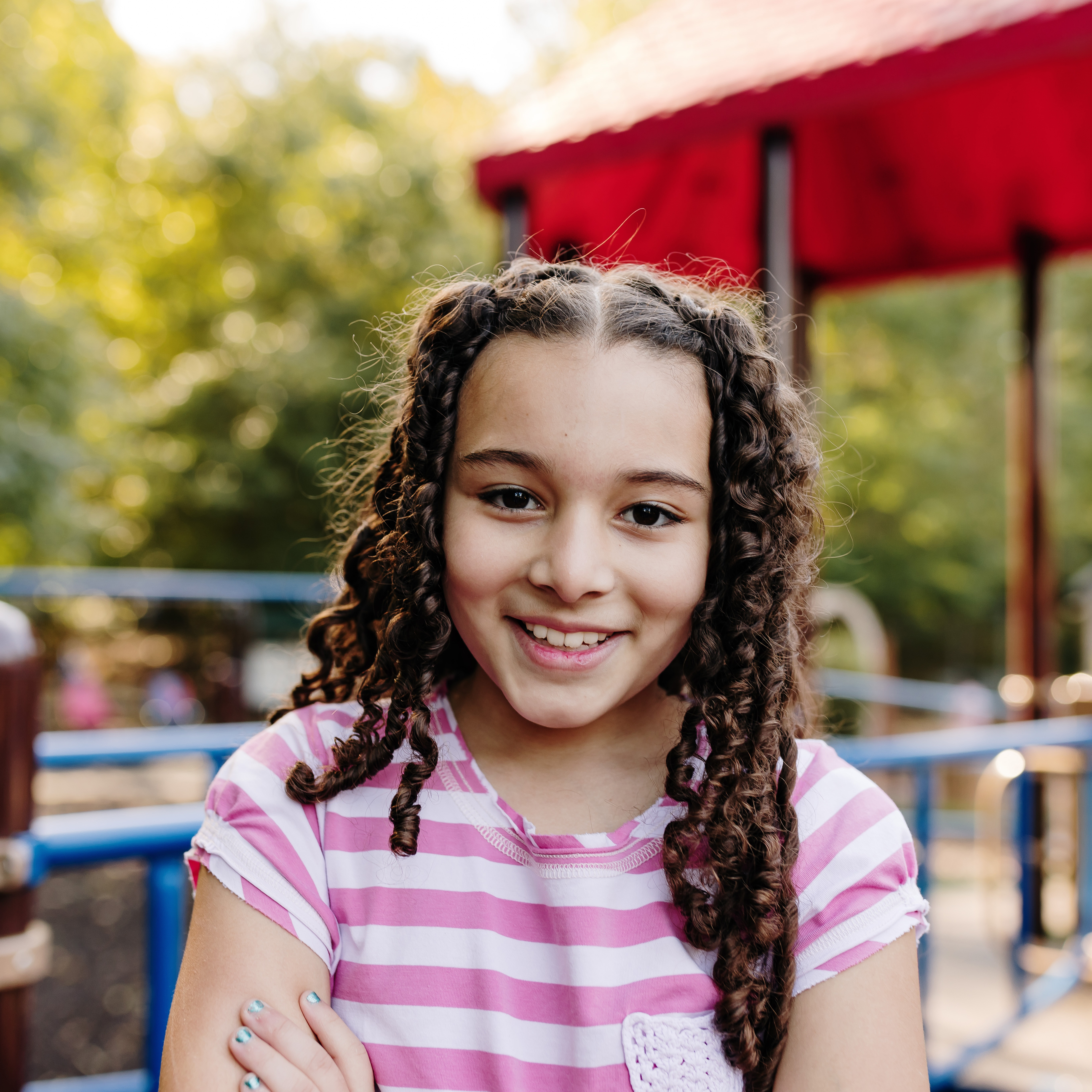Visit Vale Health Marketplace?
You are leaving balladhealth.org to visit Vale Health’s Wellness Marketplace.
Disclaimer: Ballad Health does not sponsor, endorse or recommend any product or resource listed in the marketplace.

The Ballad Health Foundation supports the Niswonger Children's Network, a regional system of pediatric care that helped Icess when she started having seizures as an infant.
Alicia sought help immediately when 10-month-old Icess collapsed to the floor, shaking and turning blue as she had her first seizure. By age 2, she was having at least one seizure a month. Icess was born with neonatal abstinence syndrome, a condition she developed due to alcohol exposure when she was in the womb. But despite treatment for the condition, the seizures persisted.
Though Alicia adopted Icess at age 4, she had been caring for her since birth. After years of continued seizures, Alicia sought help closer to home with pediatric neurologist Willie Anderson, MD, at Indian Path Community Hospital part of the Ballad Health Niswonger Children’s Network. Shortly after, the family got the answers they had chased for years.
Dr. Anderson diagnosed Icess with epilepsy in addition to ADHD, disruptive mood dysregulation disorder and a sensory disorder. She now takes daily medication and attends regular equine therapy, and her treatment has helped relieve 95 percent of her symptoms.
“I’ll never take her anywhere else,” says Alicia. “I feel like they give her the best care.”
“Watching your child have a seizure is one of the scariest things a parent can experience,” Alicia says. “Dr. Anderson and his team have given us a lot of hope through an uncertain and scary time. They are literally lifesavers.”
Icess’s mom says that while treatment has helped with most of her symptoms, she still visits the emergency room about four times a year because of seizures. With the pediatric emergency department at Indian Path Community Hospital, lifesaving care through the Niswonger Children’s Network is only a 10-minute drive away for the family. “I’ll never take her anywhere else,” says Alicia. “I feel like they give her the best care.”
She says Dr. Anderson has given them literally life-saving tips for living with epilepsy, like watching her while she’s in the bath or pool and keeping her off bicycles or skates.
Right now, Icess is on regular, twice-a-day medication. Her regular equine therapy with Small Miracles is one of the highlights of her week. If she has a bad seizure, Icess goes to the pediatric emergency department at Indian Path Community Hospital, right in her hometown of Kingsport, Tennessee, where doctors constantly check in on her and sit with her to make sure she’s ok. When she needs to get blood work, her care team comforts and distracts her, so she doesn’t even know they’re drawing blood.
Icess likes her doctors and nurses, and even though she doesn’t like the procedures, she gets excited when she hears which doctor she’s going to see. Alicia says that having a good support system is key in their family’s situation, and their doctors are a part of that network. Because of the donations the Ballad Health Foundation receives, children like Icess can have a comfortable experience in an otherwise scary situation.
Having a hospital in the Ballad Health Niswonger Children’s Network within a 10-minute drive has made a world of difference in the family’s level of comfort, and they know that help is close by whenever it’s needed. Sometimes help can come even without a hospital visit. “We can call Dr. Anderson any time we have questions,” Alicia said. “Just knowing that is a relief.”
Alicia hopes her daughter can live a more normal life one day and will be able to drive a car safely on her own, with her epilepsy totally under control. In the meantime, Icess takes it one day at a time, knowing that the team of caregivers at Niswonger Children’s Hospital, as well as her friends at equine therapy, have her back and are always cheering her on. Learn more about how the the Ballad Health Foundation gives back to the Appalachian Highlands.